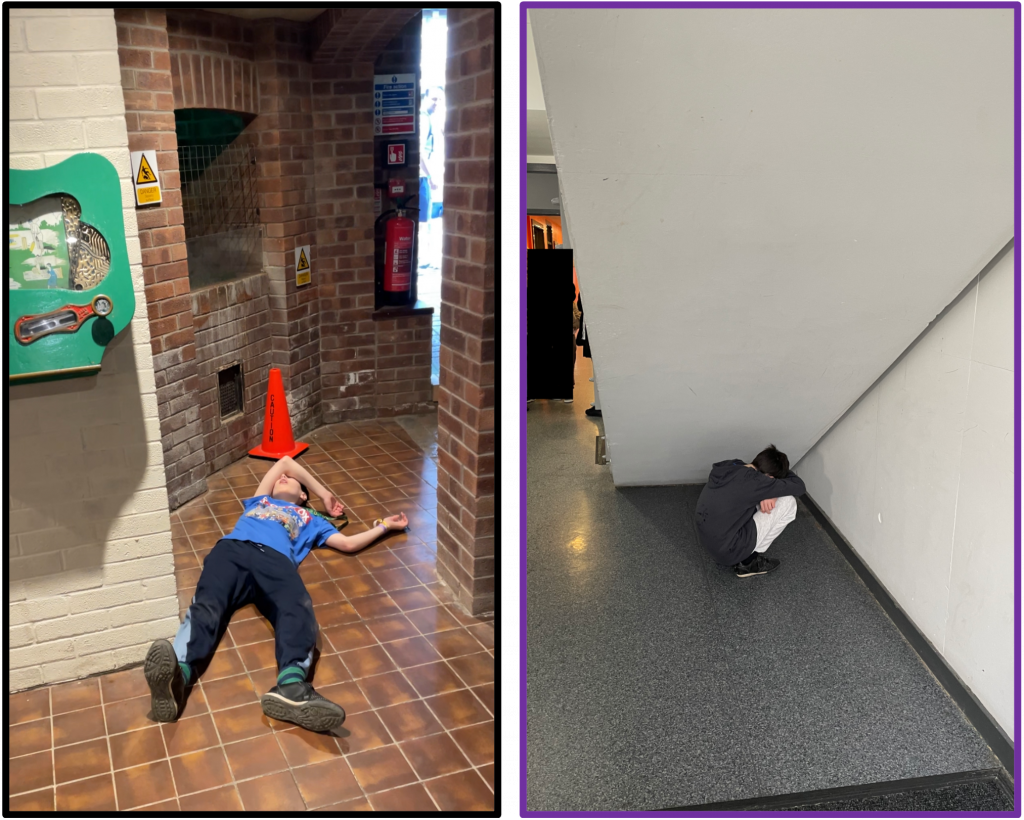Why is it ok and accepted for adults to get exhausted by stress but not children?
If an adult has a stressful and anxiety inducing event, such as a job interview, or a pressured presentation at work or meeting the in-laws for dinner, or navigating a busy day out where parents had to keep track of the kids, adults might feel exhausted afterwards and give themselves a good bit of down time to recover. Family and friends might be supportive and recognise that ‘Oh you poor thing that must have been exhausting’. Adults may put their feet up, get a takeaway and decide to clear up later. We all know that stressful situations can exhaust us, and we try and regulate ourselves by doing something that helps us restore our energy. (This example is to illustrate my point, I completely appreciate that putting your feet up is not the reality for most parents of SEND children!)
But what if we spent most of our day everyday in this heightened sense of stress and anxiety? We would be exhausted constantly. We would probably not be able to cope all day at work, we might be short tempered, we might withdraw, or be unable to do things. What if we didn’t have the freedom as adults to decide what to do to help ourselves?
And yet this is often how so many of our AuDHD children feel daily due to the social and sensory pressures they are under and the lack of autonomy children often have to help themselves. As they are children, they don’t always have the understanding or the skills to explain what they are feeling, so they tell us in their behaviours. And sadly, instead of understanding, compassion and space, children are frequently subjected to higher demands, instructions, and consequences.
Their fluctuating physical and emotional energy levels is why I believe so many of our AuDHD children struggle with full days at school, full days out and even being bored can drain emotional energy. One day they can manage and the next day they can’t, because they need time to regulate and restore. It can look confusing to adults. It can be even more confusing when they appear to be hyperactive or not able to go to sleep, but actually you know that they are tired. My son describes this as his false energy, he says “It’s when my body is tricking my brain that I have energy, but I don’t.”
I have seen this huge impact of fluctuating capacity in my son since he was little and so I am always watching him and seeing how he is managing and spotting signs when his capacity to cope is running out. I can then support him and help him find moments when he can regulate and restore – even if that means cutting a trip short. Now he is a little older, he often finds his own moment to restore, they are not always in the places one would expect e.g. see picture 1 of him lying on the floor in the middle of a pathway, but sometimes they are, see picture 2 of him crouched under some stairs at a busy school visit. Please be assured that my son was not in distress in these pictures ‘ he was taking a moment to himself’ as he explained to me, and afterwards was able to carry on our activity.
We are sympathetic to adults who are stressed, anxious and tired, so let’s also be to children.
When children show us exhausted behaviours and are unable to cope, let’s not tell them off, give them more demands, or take away their things, let’s give them downtime and help them regulate and restore.
This is why Parenting Differently moment by moment is so important. We need to recognise the physical and emotional state of our child in each moment and be their safe space for them to regulate and restore. Then they will be more able to be happy, to feel at ease, to trust us, to collaborate, to be curious, to show empathy and to progress towards a reciprocal relationship with us.
Stay well, stay strong and good luck Parenting Differently. You got this.

